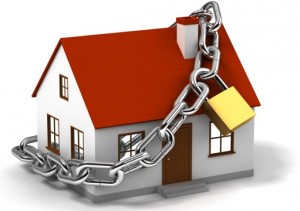Barely a week goes by without a horror story involving a property damaged by meth contamination but, last week, the Tribunal ruled in favour of a Blenheim landlord trying to deal with such a situation.
In January, Tasha McCracken’s rental property was discovered to be contaminated with meth and it cost her over $14,000 for testing and remediation to get it back to a safe standard
But her insurance company covered the costs and now the Tribunal has ordered the tenant to pay McCracken over $3,000.
The possibility of ending up in such a situation is a major concern for most landlords, so we have put together a list of our top tips on how to safeguard rental properties from meth contamination.
1. Precautionary testing
Always carry out rigorous pre and post tenancy baseline meth testing of rental properties.
Doing so means a landlord has evidence a rental property was meth free prior to a tenancy and can identify if any contamination occurs during a subsequent tenancy. This provides a baseline for the Tribunal should a landlord need to take action.
Meth Solutions director Miles Stratford said conducting professional testing might cost more money, but benefits and opportunities arise from it.
“Not only will it preserve the market value of a property, but it is often possible to charge more rent because tenants can be assured the house is meth free. This will also get better quality tenants who stay longer.”
There has been a lot of confusion around accurate and safe testing and remediation levels to date.
But a Standards NZ committee is at work on producing a new standard on meth testing and remediation. That standard is now expected to be ready in late May or June.
2. Get an alarm
It pays for landlords to install meth minder detector systems in their rental properties.
Meth minder systems utilise sensors, batteries and the digital cell phone network to detect gases associated with meth manufacture and issue an alert if they anything is detected.
Chameleon Investigations director Debra Young said installing such a system helps compliance with insurance requirements, as well as mitigating the overall risk dramatically.
“Along with professional testing, it might seem like a bit of an outlay up front but, in reality, you are playing Russian roulette with your asset and your finances if you don’t do it.”
Tenants need to be informed that a property is monitored by a meth minder system but the idea is that the presence of the system itself will act as a deterrent.
3. Tenant selection is key
To find tenants who will care for the property and fulfil their obligations, landlords need to make sure that they undertake a comprehensive tenant selection processes with every tenancy.
Best practice in this area means methodically working through all the following steps:
• Asking potential tenants to complete a pre-application form, which includes information on renting history, and provide references.
• Interviewing potential tenants and finding out more information about their circumstances (including income), their renting history and how many people will be living in the property. It can pay to screen all those who will be living in the property.
• Checking the references of potential tenants. They should provide at least two referees.
• Running a credit history check on potential tenants. Landlords need to ask for permission to do this either in the pre-application or at the interview.
• Checking if potential tenants have been involved in tenancy disputes or have been to the Tribunal.
During the selection process, landlords can let tenants know if they have any specific terms they want to add to the tenancy agreement. One such term could be a meth testing agreement.
4. Inspect regularly
It is always a good idea for landlords to conduct regular inspections of their rental properties to check there is no damage and tenants are keeping things reasonably clean and tidy.
But regular inspections also provide a good opportunity to keep an eye out for any signs of meth manufacture.
Warning signs of meth manufacture include unusual chemical smells; lots of stockpiled chemical containers; numerous discarded cold tablet packages; chemical stains around sinks, the toilet, the laundry or drains; and yellow/brain staining of ceilings, walls, floors and surfaces.
Young added that landlords also have to make certain their property inspections, be they by themselves or a property manager, are carried out in a way which meets the requirements of their insurance policy.
5. Don’t overlook insurance
Landlords must ensure they have got the right insurance cover in place. All too often, people think their policy covers meth contamination only to find it doesn’t.
Veteran property investor Olly Newland said landlords should check their insurance policies to see if they adequately cover meth contamination situations. “If they don’t, ask to have them extended to ensure they cover any potential property damage from meth.”
However, IAG corporate affairs manager Craig Dowling has warned that insurance for meth contamination can be complex due to different views and expectations. For this reason, IAG recently released an e-book of tips and advice in relation to the issue.
Read more:
Eagerly awaited meth standard delayed
Insurer tackles meth contamination confusion
Moving forward on meth contamination




 Search
Search
